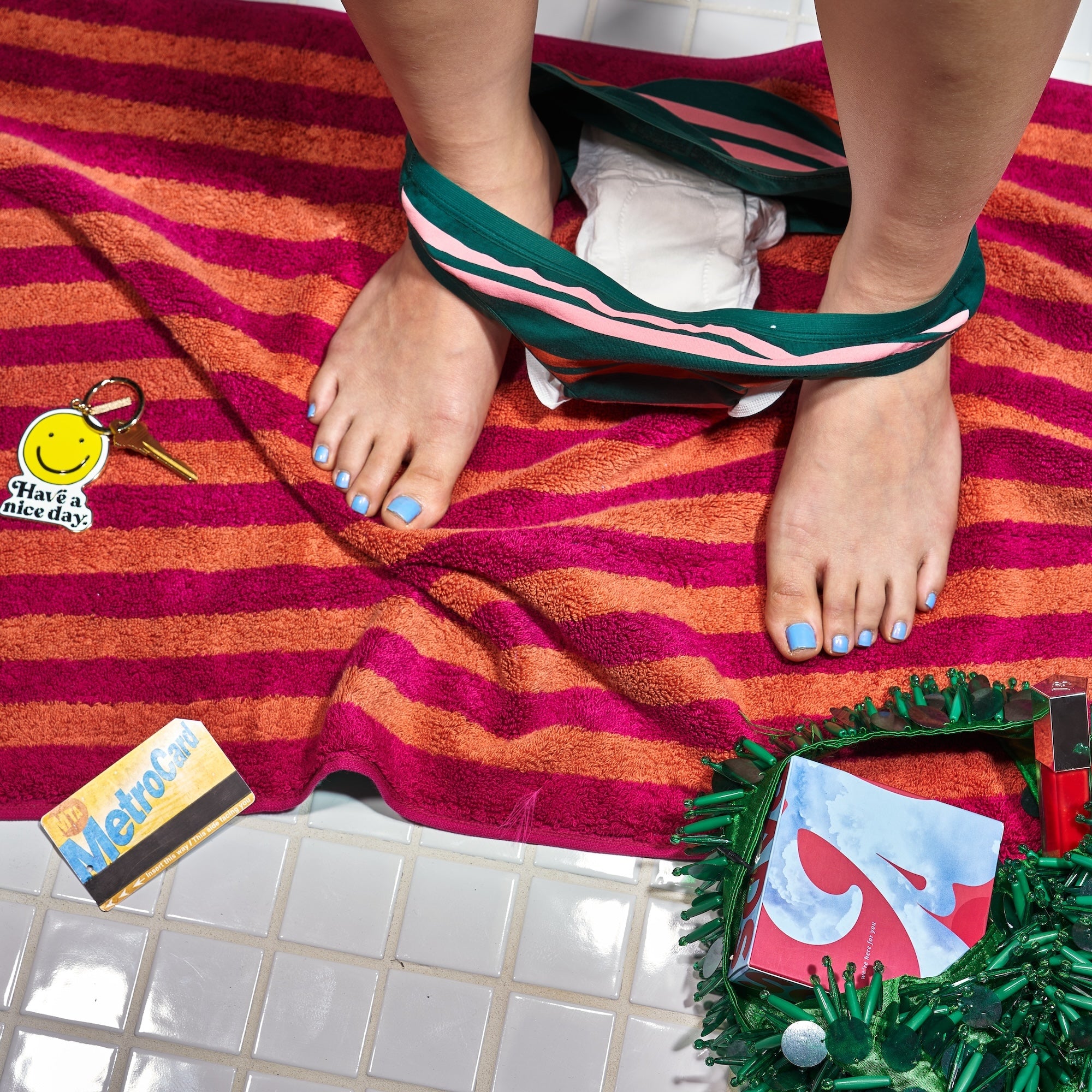Before building her brand August, Nadya Okamoto founded Period, a nonprofit that went into the community and destigmatized menstruation for those in need. Through her work with Period, she met with thousands of people to understand what the vision for menstrual equity, care, and transparency should look like. Those conversations inspired her to launch August, a company that makes sustainable period products out of 100% absorbent cotton.
Nadya’s goal with August is to reimagine periods as powerful. Launched in 2020, the brand has a transparent supply chain and a dedication to inclusive storytelling that includes the entirety of people who menstruate, no matter their gender identity. You can find August at your local Target or WeWork. Her brand has stood out in the personal care market and has become a popular D2C company, in part because of strategic partnerships with Doordash, and the USA Track & Field team.
Since transparency is part of the DNA of the brand, Nadya goes beyond using the brand’s social channels to promote the business and also promotes August on her personal TikTok account to her more than 4 million followers. On TikTok, she’s a “menses-fluencer” that documents the challenges of entrepreneurship, her work as a period poverty activist, and even her personal mental health struggles.
Building August has always been about continuing a conversation about the role of menstruation in society, so Nadya uses specific tactics to research and collect customer feedback, and understand her customers’ pain points. After four years of brand building, Nadya has a playbook she uses to engage customers and create life-long bonds with her community.
The best strategies for collecting market research and community feedback

Ask tough questions
When she started August, Nadya got on Zoom calls and sent iMessages asking friends, family, and volunteers about their period products. “What are you not currently getting? What do you need? And how can we do it in a way that is unique and different,?” she says.
Those conversations with friends, family, and strangers gave her the idea to launch her own brand. But it wasn’t the conversations alone, it was thanks to the questions she asked. She was personal and detailed, and didn’t tip-toe around the subject matter.

Choose a communication platform you can rely on
When you’re a startup doing your own user research, having a way to directly communicate with your target audience is essential. Brands sometimes use social channels like Instagram, X (formerly Twitter), or Discord, others use toll-free numbers, August used Geneva. As a small business August wanted something useful that didn’t require a large chunk of its budget.
“We were looking for a conversation platform and Geneva really fit what we were looking for, because it was free, and easy to use,”Nadya says. Geneva is a group chat app that connects people online. Nadya was able to use it to poll August’s customers, run concepts by her core consumers, and have a space for others to interact with the August community, whether she was there or not.
Nadya always felt like August’s customers were a part of the brand, so allowing them to speak directly to her and each other was never in question.

Lead by example first
In an age where transparency can feel strategic, Nadya knows that there is still stigma around menstruation. Her goal is for August to change the narrative, so she opens up about her own menstrual journey online. You’ll see TikTok videos of her asking her boyfriend to grab some pads for her or you’ll see her standing outside the WEF in Davos offering menstrual products to attendees. She shares personal stories, mostly on TikTok, and responds with meaningful questions when people open up to her about their time of the month.
Nadya knows that if she wants to break down barriers and destigmatize periods, she needs to do what she’s asking of her community. If you want authentic, valuable feedback, you’ll need to make people feel comfortable and safe by opening up first. Share your experience, let your community know why you’re passionate about helping others, and be ready to answer the tough questions that you’re asking of your customers.
Creating a meaningful brand takes an alchemy of user research, community building, and message refinement. And, while you can find books and courses on how to do these things in a silo, entrepreneurs like Nadya who understand their product and community, can achieve these goals organically.
While your product might not have the same social stigma as discussing menstrual products, understanding your product’s unique value proposition, as well as your own personal value proposition can propel your brand’s success.
Listen to more of Nadya’s advice on community building, product development, and VC funding in the full Shopify Masters episode.
